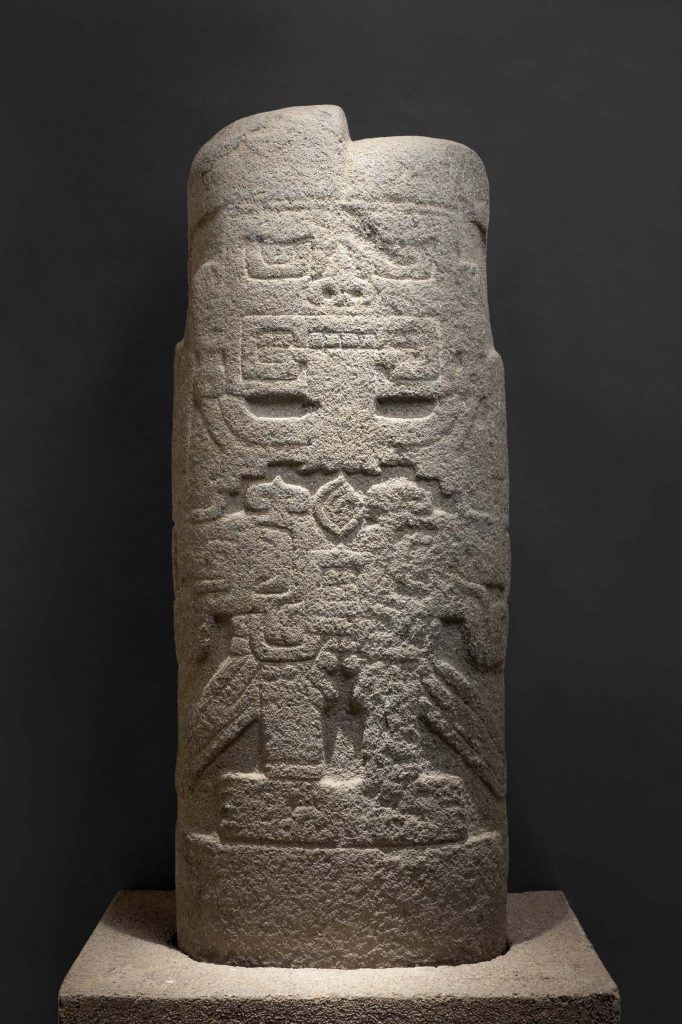Pacopampa Stele
Room 2, Vitrine 11
Stone sculpture
Highlands of northern Peru
Formative Epoch (1250 BC – 1 AD)
ML300025
This female deity takes on the features of a bird (the celestial world), feline (earthly world) and serpent (underworld), transforming herself into an all-powerful being encompassing the forces of three worlds.
- This stone stele is approximately three thousand years old and comes from the Pacopampa temple, Cajamarca, in Peru’s northern highlands.
- In the temples of the Formative Epoch, carved monoliths gave form to the sacred beings that personified the power of sacred sites.
- The deity depicted on this stone stele is female; a vagina dentata can be distinguished between her legs, a feature shared by many goddesses from ancient religions throughout the world. This feature expresses the power of the “terrible mother” archetype; the life-giving being also seen as an all-powerful and castrating force.
- Two appendages in the form of birds’ feathers emerge from her waist.
- Feline features, including fangs, are distinguishable in the anthropomorphic face of this individual, and in the feline face depicted in the middle of its body.
- From the feline face located in the middle of the body, two appendages emerge, one on each side, taking the form of a pair of serpents.
- From the mouth a long, broad tongue emerges, recalling perhaps the forked tongue of a serpent, as well as the discharge produced by a spider as it spins its web.
- A spiral design, resembling a snail shell, is visible on the chest.
- The depiction of mythological beings with the ability to establish contact between different worlds indicates the important role of religious art in ancient Peru, during a period when ruling high priests and priestesses were consolidating their power.
- Recently, at the Pacopampa temple, the tomb of a high priestess was excavated. She was discovered adorned with jewelry fashioned from semiprecious stones and gold, the designs of which closely resemble those exhibited by the deity in this stele, including her round ear adornments, the Strombus shell worn on the chest, and the feather-like appendages that emerge from her waist.
